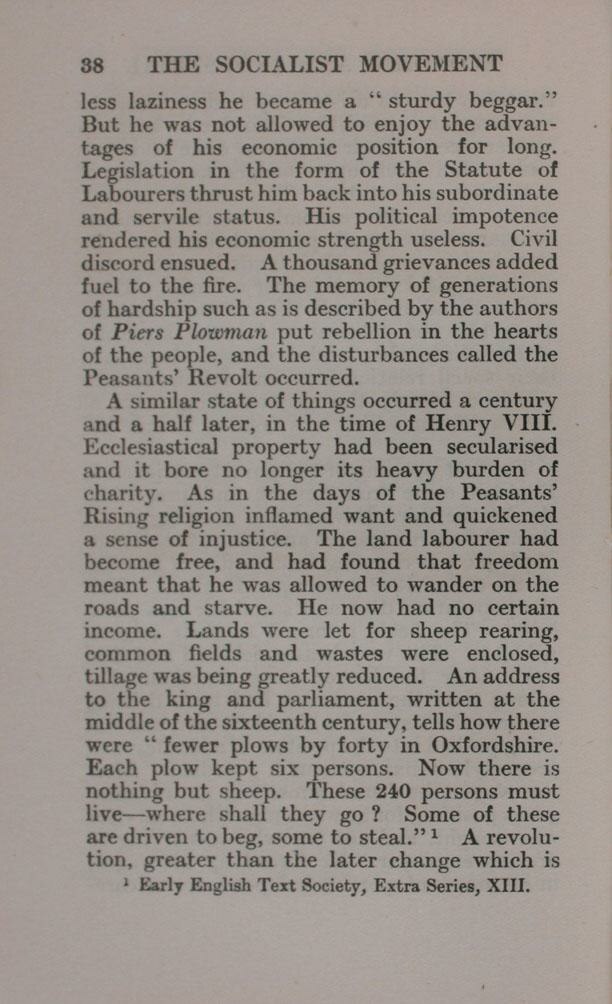less laziness he became a "sturdy beggar." But he was not allowed to enjoy the advantages of his economic position for long. Legislation in the form of the Statute of Labourers thrust him back into his subordinate and servile status. His political impotence rendered his economic strength useless. Civil discord ensued. A thousand grievances added fuel to the fire. The memory of generations of hardship such as is described by the authors of Piers Plowman put rebellion in the hearts of the people, and the disturbances called the Peasants' Revolt occurred.
A similar state of things occurred a century and a half later, in the time of Henry VIII. Ecclesiastical property had been secularised and it bore no longer its heavy burden of charity. As in the days of the Peasants' Rising religion inflamed want and quickened a sense of injustice. The land labourer had become free, and had found that freedom meant that he was allowed to wander on the roads and starve. He now had no certain income. Lands were let for sheep rearing, common fields and wastes were enclosed, tillage was being greatly reduced. An address to the king and parliament, written at the middle of the sixteenth century, tells how there were "fewer plows by forty in Oxfordshire. Each plow kept six persons. Now there is nothing but sheep. These 240 persons must live—where shall they go? Some of these are driven to beg, some to steal."[1] A revolution, greater than the later change which is
- ↑ Early English Text Society, Extra Series, XIII.
